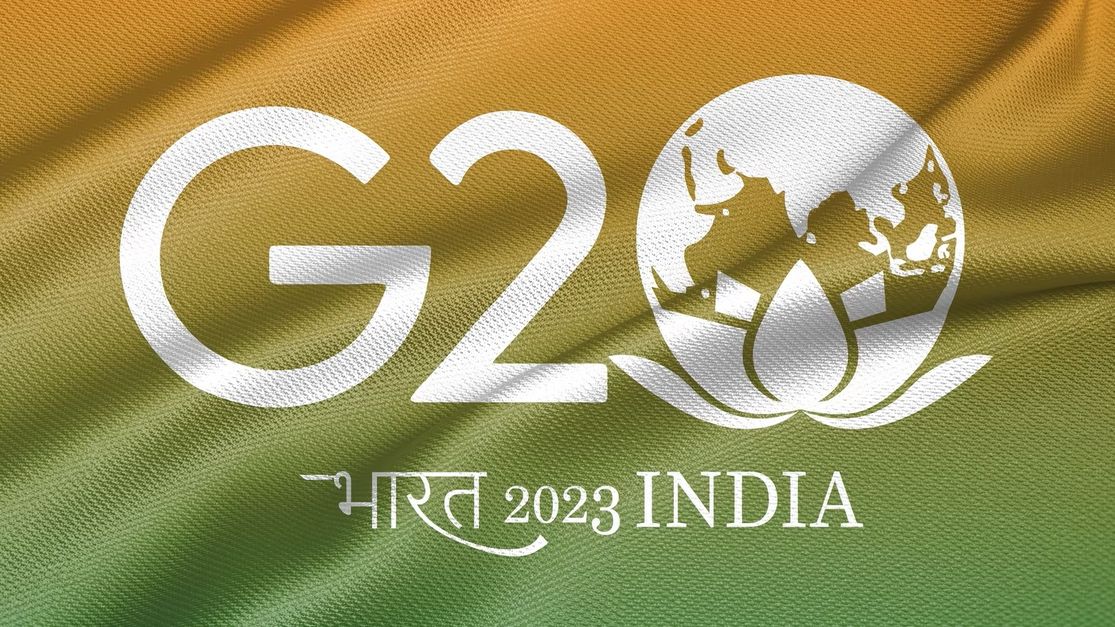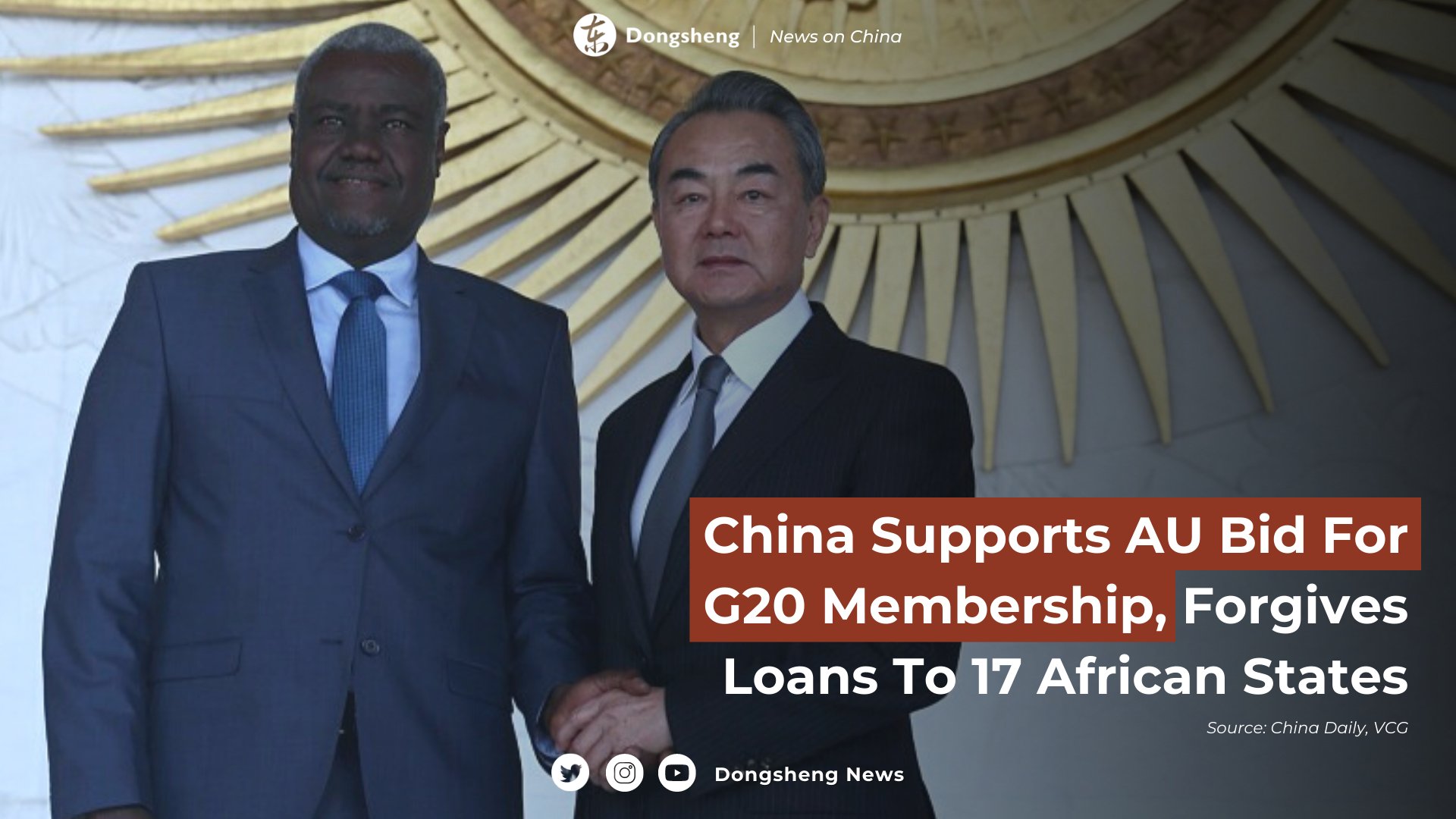China Bolsters African Union’s Bid for G20 Inclusion

China Bolsters African Union’s Bid for G20 Inclusion
In a groundbreaking move that underscores its commitment to strengthening global partnerships, China has declared its unwavering support for the inclusion of the African Union (AU) within the prestigious G20 bloc. Chinese Foreign Ministry spokesperson Mao Ning proudly proclaimed China’s status as the “first country to explicitly support” this significant endeavor. As the world watches, this gesture paves the way for the African Union, a continental body uniting 55 member states, to play an amplified role in global governance.
The G20, comprised of 20 major economies, serves as a vital forum for addressing critical global challenges, from economic stability to sustainable development. Its decisions have far-reaching implications, impacting nations across the globe. Given this, the potential inclusion of the AU could be a game-changer in fostering a more equitable and inclusive international community.
China’s move to back the AU’s inclusion in the G20 carries considerable weight. As one of the world’s foremost economic and political powers, China’s support amplifies the AU’s bid, sending a resounding message that global collaboration and the representation of diverse voices are pivotal in tackling today’s complex challenges.

China’s Support for the African Union
The African Union, established in 2001, comprises 55 member states from across the continent. Its primary objectives include promoting unity, peace, and sustainable development in Africa. As the AU seeks to elevate its influence on the global stage, China’s endorsement is a significant step forward.
Chinese Foreign Ministry spokesperson Mao Ning articulated China’s stance, emphasizing the importance of the AU’s participation in the G20. He stated, “We support the AU in playing a bigger role in global governance.” This statement underscores China’s belief in the African Union’s potential to contribute positively to shaping international policies and fostering economic growth and development.
China’s commitment to supporting the AU extends beyond mere words. Over the years, China has significantly increased its engagement with African nations, establishing itself as a major player in the continent’s development. Through initiatives such as the Belt and Road Initiative (BRI), China has invested heavily in infrastructure projects, trade partnerships, and human resource development across Africa. This has not only strengthened diplomatic ties but also facilitated economic growth and job creation.
China’s support for the African Union’s inclusion in the G20 aligns with its broader strategy of promoting multilateralism and a more equitable international order. As the world grapples with interconnected challenges like climate change, pandemic response, and economic stability, China recognizes the need for diverse perspectives at the decision-making table. In this context, the AU’s involvement would not only bring the African continent into the fold but also enhance the G20’s effectiveness in addressing these global issues.
Global Significance of AU’s Potential Inclusion
The potential inclusion of the African Union in the G20 is significant on multiple fronts. It reflects a growing recognition of Africa’s importance in global affairs. With its vast resources, young and dynamic population, and untapped economic potential, Africa has the capacity to significantly influence the trajectory of the global economy.

Furthermore, the AU represents a diverse range of voices, cultures, and perspectives. Inclusion within the G20 would ensure that African nations have a direct say in shaping international policies that affect their economies and societies. This represents a crucial step toward rectifying historical imbalances in global governance.
Moreover, the global community is facing pressing challenges that demand collective action. Climate change threatens the planet’s future, economic inequalities persist, and the COVID-19 pandemic has underscored the importance of global health cooperation. The African Union, with its unique insights and experiences, can provide valuable contributions to addressing these challenges.
The Potential Impact on G20 Dynamics
The potential inclusion of the African Union in the G20 could reshape the dynamics of the group. Currently, the G20 represents a collection of primarily industrialized and economically powerful nations. While these countries undoubtedly hold substantial influence, their policies and decisions impact the entire world. The AU’s inclusion would inject fresh perspectives and priorities into the discussions.
African nations face unique challenges, including infrastructure development, access to healthcare, and food security. Integrating these concerns into the G20 agenda would broaden the scope of global cooperation and enhance the group’s ability to address a wider range of issues. Additionally, the AU’s participation could foster greater collaboration on trade, investment, and technology transfer between G20 members and African nations.
Furthermore, the G20 has a critical role in coordinating global economic policies. As the African continent continues to grow and develop, its economic contributions become increasingly important. The AU’s inclusion would recognize this economic significance and ensure that African nations have a voice in shaping international economic policies.
Challenges and Considerations
While the support from China and other nations for the African Union’s inclusion in the G20 is a promising step, several challenges and considerations must be addressed. One key issue is the need for consensus among existing G20 members. Expanding the group’s membership requires careful negotiation and consideration of the potential impact on its effectiveness and decision-making processes.
Additionally, the AU itself must be prepared to take on the responsibilities and obligations that come with G20 membership. This includes actively engaging in discussions, contributing to policy development, and aligning its priorities with the broader goals of the G20. Adequate preparations and capacity building will be essential to ensure a smooth integration.

Moreover, the AU’s inclusion should not be viewed as a one-sided process. Existing G20 members should also benefit from the AU’s participation, whether through enhanced economic opportunities, access to African markets, or collaborative efforts to address global challenges.
China’s robust support for the African Union’s bid to join the G20 marks a significant step toward a more inclusive and equitable global governance system. It acknowledges the importance of diverse voices and perspectives in addressing pressing global challenges.
The potential inclusion of the AU in the G20 is a testament to Africa’s growing significance in the world. It recognizes the continent’s vast potential, unique challenges, and the contributions it can make to global decision-making.
However, this move also presents challenges that must be navigated carefully. Ensuring consensus among existing G20 members and preparing the AU for its new role will be essential.
As the world watches this development, it becomes clear that China’s support is not merely a symbolic gesture but a concrete step toward a more representative and effective global governance structure. The road ahead may be complex, but it holds the promise of a more inclusive and equitable international community.




